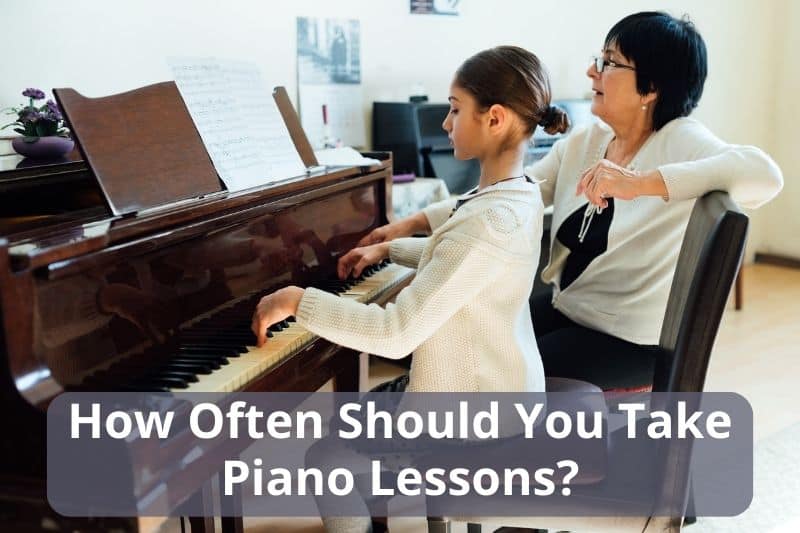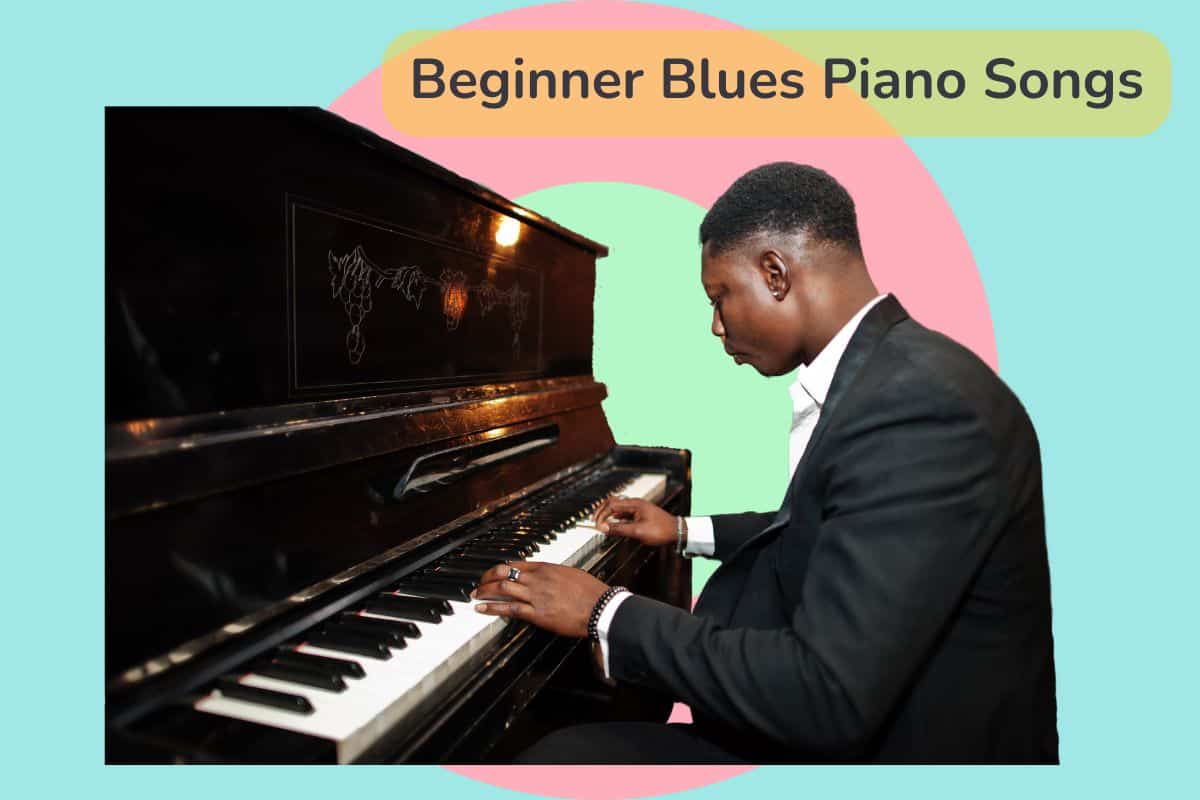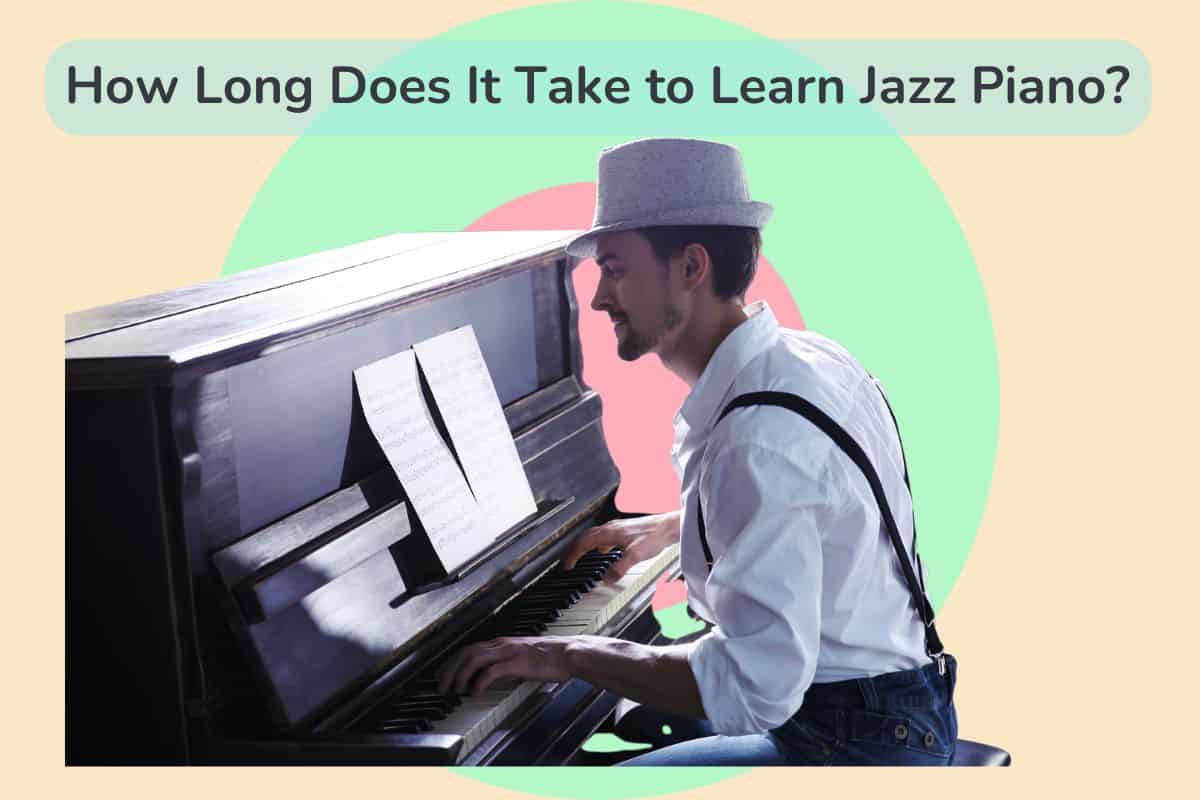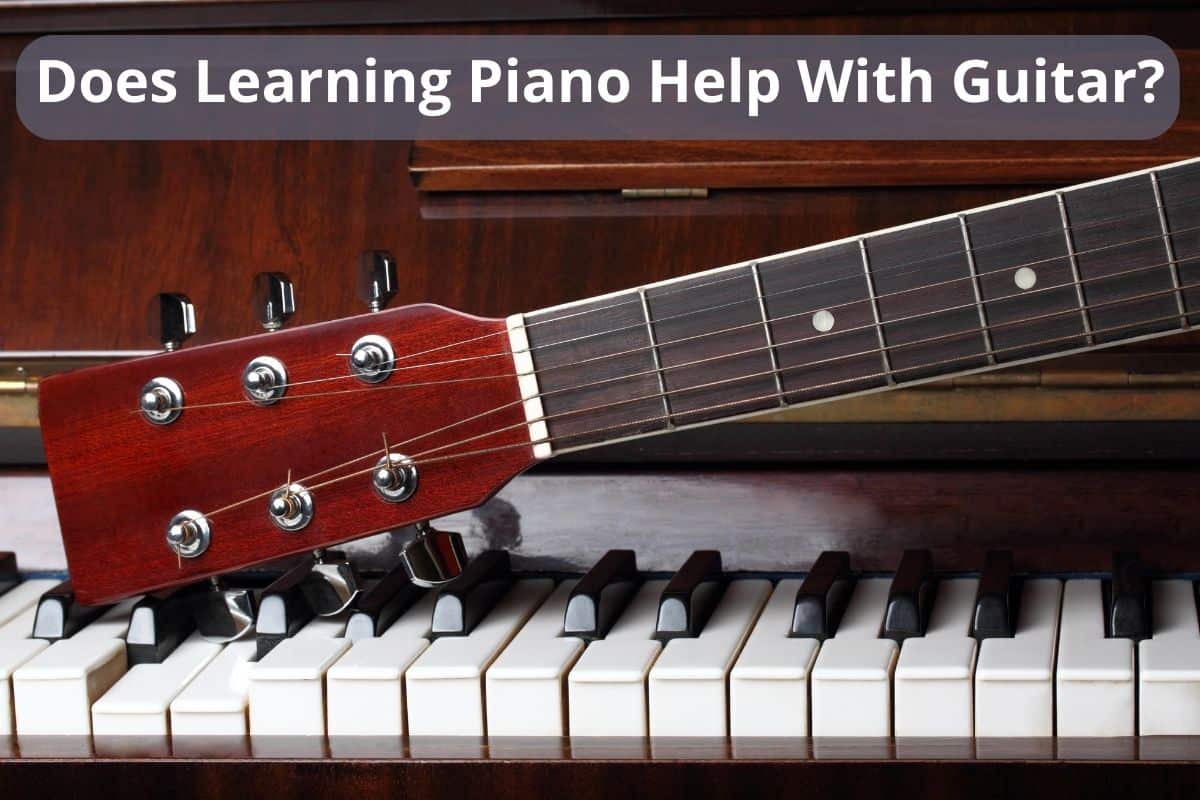Learning to play the piano can be a highly rewarding and enjoyable experience. However, one question that often arises for beginners is: How often should you take piano lessons? While there’s no one-size-fits-all answer, there are some general guidelines that can help you create a comfortable and effective learning schedule.

The frequency of your piano lessons will largely depend on factors such as your personal goals, availability, and the intensity of your practice sessions. It’s important to strike a balance between attending lessons and allowing time for self-practice in between. Piano lessons are typically done once a week, which allows students to integrate the material learned and prepare for the next session.
Key Takeaways
- Weekly piano lessons allow time to practice and integrate learned material.
- Balancing lesson frequency with self-practice is crucial.
- Personal goals and availability affect the frequency of piano lessons.
Determining the Frequency of Piano Lessons
Age and Talent Factors
When deciding how often to take piano lessons, it’s important to consider your age and talent level. For younger students, consistency is key, so taking lessons once a week might be just right. If you’re an adult and have previous musical experience, you might find more than one lesson per week helpful to keep progressing quickly. It’s crucial to find the balance between too much and too little!
Beginner vs Advanced
If you’re just starting your piano learning journey, one lesson per week is a good starting point. This pace allows you to comfortably go through basic concepts and techniques without feeling overwhelmed. On the other hand, if you’re an advanced player, you may benefit from taking lessons twice a week or even once every other week. This flexibility in scheduling gives you time to explore more complex pieces and practice on your own.
Individual Goals and Progress
Everyone’s goals for playing the piano are different. If you want to learn just for fun, then one lesson a week is usually sufficient to keep you progressing at a steady pace. However, if you have more serious aspirations, like preparing for a performance or competition, you might need more guidance – maybe consider two lessons per week to stay on top of your game.
Remember, the key is to ensure that you have enough time between your lessons to practice on your own, as this is where the true learning and progress happen. Enjoy your journey with piano lessons, and make sure you practice effectively!
Lesson Duration and Structure
Practice Time Allocation
When it comes to piano lesson lengths, you have a few options: 30-minute, 45-minute, and one-hour lessons. It’s important to pick a lesson duration that works for you and fits your schedule. Generally, 30-minute lessons are great for young kids who might get distracted easily. As you progress and develop better focus, you can consider moving to 45-minute or one-hour lessons.
Focus and Concentration
In your piano lessons, you’ll be working through a workbook with your teacher, learning new concepts, and asking questions. The key to mastering the piano is maintaining focus and concentration throughout these lessons. Remember, the more you concentrate, the faster you’ll learn and develop your skills.
Adult Students vs Young Children
Adults and young children often require different approaches to piano lessons. While adults might prefer longer lessons to dive deeper into learning, young children might benefit from shorter, 30-minute sessions to maintain their concentration. As an adult, be patient with your progress – learning the piano takes dedication and determination.
One of the important factors to note is to practice what you learned at home. Aim to practice at least 30 minutes a day, 5 days a week. Consistent practice will help you develop muscle memory and improve your piano skills steadily. So, whether you’re an adult or a young child, remember that progress takes time and effort!
Finding the Right Piano Teacher
In-Person vs Online Lessons
When it comes to finding a piano teacher, you have two main options: in-person or online lessons. Both can be great for different reasons. In-person lessons give you the chance to have direct interaction with your teacher and receive immediate feedback. On the other hand, online piano lessons can often fit better into your busy schedule, allowing you flexibility and control over your learning experience. Whatever you choose, make sure it suits your needs and preferences.
There are also many apps you can access online that provide music lessons to help you play piano and enhance your skills. These include Pianote, Playground Sessions, Skoove, Flowkey & many more.
Teaching Methods and Styles
Different piano teachers may have varying teaching methods and styles, so it’s essential for you to find one that makes learning enjoyable and engaging. Some teachers might focus on classical music, while others may have a more eclectic approach, teaching a mix of genres. You may also want to consider the teaching style, such as whether the teacher is strict, laid-back, or somewhere in between.
It can be helpful to sit in on a trial lesson or observe a class to see if a teacher’s methods and style work for you. Remember, the best approach is one that keeps you excited and motivated to continue practicing and learning.
Experience and Credentials
Finally, take some time to find a great piano teacher and research their experience and credentials. Look for a teacher who has a solid background in musical education and performance experience. It can be beneficial if they also have experience teaching students at similar skill levels to yours.
Don’t shy away from asking your potential teacher about their qualifications and experience. Most professional and reputable teachers will be more than happy to share this information with you. After all, finding the right piano teacher is crucial for your musical journey, and you deserve one who will guide you to your full potential.
Areas of Study and Techniques
Technique and Repertoire
Mastering your piano technique is essential, and that involves learning various exercises, scales, and arpeggios. During your piano lessons, you’ll develop finger strength and agility, which will allow you to play different pieces with ease. Additionally, you’ll explore various genres like jazz, classical, and more, so you can become a well-rounded pianist with a diverse repertoire.
Music Theory and History
Music theory is another crucial aspect that you’ll study during your lessons. You may not be enthusiastic about learning the nuts and bolts of music, but trust me; it will make your practice sessions much more effective and enjoyable. Plus, having a solid grasp of music history will help you better appreciate the works of famous classical pianists and the evolution of music over time.
Reading Music and Ear Training
Did you always wonder how people can read those tiny dots and lines on a music sheet and turn them into beautiful melodies? Well, you’re about to learn this yourself! Reading music is an essential skill that can take your piano playing to the next level. Get ready to read sheet music and practice sight-reading during your lessons.
Another vital skill is ear training. Not only does it help you recognize notes and chords just by listening, but it also improves your playing by ear. With some commitment and consistency, your listening ability will improve, and who knows? You might even amaze yourself with your newfound skills.
Remember to have fun while learning and exploring the amazing world of piano. The journey ahead might be challenging at times, but the rewarding feeling of mastering new skills and songs is worth every practice session!
Setting and Achieving Piano Goals
Establishing Realistic Goals
First things first, you need to set some realistic goals for your piano journey. Think about what you want to achieve and how much time you can realistically commit to practicing. For instance, if you aim to master a simple piece, you can achieve this in just a few months with consistent practice. However, if you are pursuing more complex pieces, it may take years of dedication and practice.
Some tips to help you set achievable goals:
- Break down bigger goals into smaller milestones
- Set short-term and long-term goals
- Make a practice schedule and stick to it
- Stay motivated by celebrating small achievements
Monitor and Evaluate Your Progress
Keeping track of your progress is crucial as you embark on your piano learning journey. By monitoring and evaluating your progress, you can see how far you’ve come and identify areas where you need to improve. Here are some ideas to help you stay on top of your game:
- Keep a practice journal to record your daily practice sessions
- Record your practice and listen back to assess your performance
- Share your progress with friends, family, or your piano teacher to get feedback
- Set new goals as you complete old ones
Dealing with Plateaus and Frustration
There will be times when you feel like you’re stuck and not making any progress, but don’t worry! This is totally normal. Here’s what you can do when you hit a plateau:
- Take a break and give your mind and fingers a rest
- Revisit your goals and re-evaluate your practice habits
- Try a new approach or technique to challenge yourself
- Mix up your practice routine to keep things interesting
With patience, motivation, and a willingness to learn, you are bound to see improvement in your piano-playing abilities. So, take a deep breath, keep practicing, and remember to have fun along the way!
Overcoming Challenges in Learning Piano
Addressing Learning Disabilities and Concentration Issues
Don’t worry if you have a learning disability or concentration issues. When learning piano, your teacher can provide strategies to help you succeed. For instance, breaking down pieces into smaller sections or using visual aids can improve your understanding. Also, taking frequent breaks helps maintain your attention span while practicing.
Developing Good Practice Habits
Building good practice habits is crucial in learning piano. Start by setting aside consistent practice times, preferably daily, even if it’s just for a short period. When you practice, break down your sessions into smaller tasks, such as focusing on one hand at a time or mastering a specific section of a piece. As you progress, make sure to avoid common mistakes like incorrect fingering or skipping lessons. This way, you’ll steadily improve and find satisfaction in your piano journey.
Maintaining Motivation and Commitment
Commitment and motivation are essential factors that determine your success in learning piano. To maintain your enthusiasm, set realistic goals for yourself and celebrate small achievements. Having a piano teacher who gives you personalized guidance and feedback can greatly boost your motivation. Also, don’t forget to have fun and explore different genres or styles of music that genuinely interest you. By doing so, you’ll keep your passion for piano alive and make the entire process entertaining and rewarding.
Piano Lessons for Different Ages and Levels
Are you wondering how often you should take piano lessons? The answer varies depending on your age and skill level. Let’s dive in!
When it comes to very young children (ages 6-9), the best age to start piano lessons taking lessons once a week is ideal. This helps them develop a solid foundation while maintaining their interest and enthusiasm. Plus, their little fingers and attention spans can manage!
Beginner and intermediate pupils should also aim for once-a-week lessons. This frequency gives you enough time to practice between sessions and apply what you’ve learned. Consistency is key when you’re learning the piano, so sticking to a weekly schedule will help you progress faster!
As for proficient players, you might be looking for a different kind of guidance. Weekly or biweekly lessons can still be beneficial for fine-tuning your skills and learning new pieces. However, you can also explore masterclasses, workshops, or one-on-one sessions with renowned instructors to push your boundaries and excel even further.
No matter what age or skill level you’re at, just remember that the most important thing is to enjoy your piano journey! Stay committed, have fun, and watch your progress soar.



